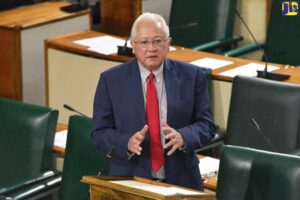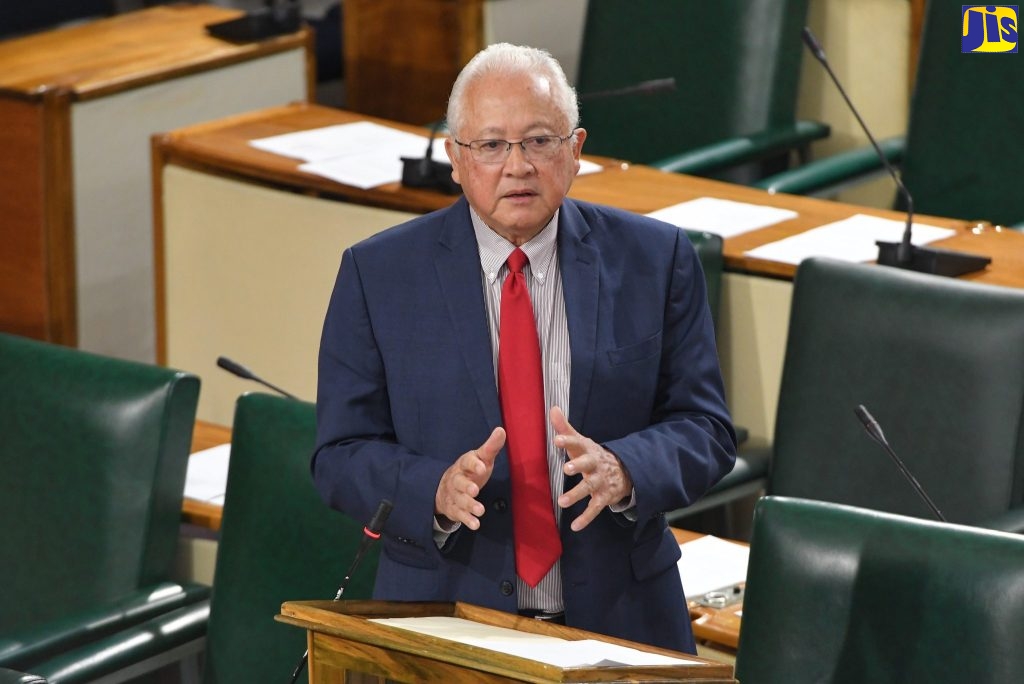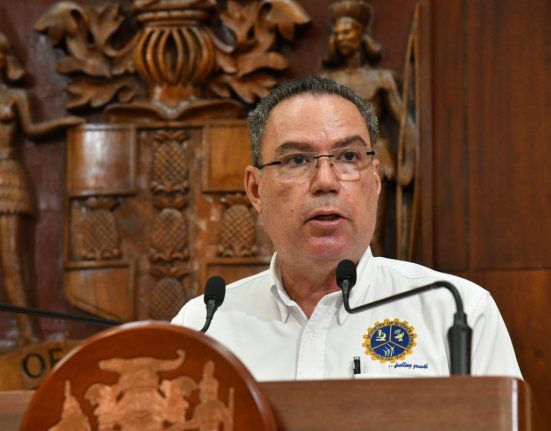
Two critical pieces of legislation that will impose stricter penalties for murder will be placed before a Joint Select Committee to ensure wide consultation.
The Bills – the Offences Against the Person (Amendment) Act 2023 and Criminal Justice (Administration) (Amendment) Act 2023 – were tabled in the House of Representatives on February 21.
Tabling the Bills, Minister of Justice, Delroy Chuck, said members of the Committee will be named at the earliest sitting.
He explained that the increased mandatory minimums will provide greater alignment between the sentencing regimes governing serious crimes and the public’s expectations of the justice system.
“The possibility of the imposition of a more punitive sentence will go a long way in preserving the credibility of Jamaica’s justice system in the eyes of individuals traumatised by the untimely death of their loved ones,” the minister said.
He informed that Jamaica has the highest homicide rate among 22 Latin American and Caribbean countries.
“Our extreme reality necessitates that the legislative framework governing mandatory minimum sentences for murder, surpass the average threshold used in other jurisdictions,” Chuck said.
“These legislative amendments will aid in the fight against the country’s soaring crime rate by ensuring that the applicable penalty matches the severity of the crime,” he added.
He said that in Section 3(1)(b) of the Offences Against the Person (Amendment) Act, the proposed amendment is to increase the mandatory minimum sentence of imprisonment from 15 to 45 years.
It also proposes increasing the mandatory minimum sentence to be served before being eligible for parole, where the offence is capital murder, from 20 years to 50 years under 3(1C)(a), which deals with eligibility for parole.
The proposal is also to increase the mandatory minimum sentence to be served before being eligible for parole, where the sentence is imprisonment for life from 15 years to 45 years, under section 3(1C)(b)(i).
Additionally, it is proposed to increase the mandatory minimum sentence to be served before being eligible for parole, where a sentence of a term of years is given from 10 years to 35 years under 3(1C)(b)(ii).
The minister said the imposition of mandatory minimum sentences via legislation is generally intended to send a strong message that the society will not tolerate certain forms of criminal behaviour.
Regarding the Criminal Justice (Administration) (Amendment) Bill, it proposes to amend section 42(F) of the Criminal Justice (Administration) Act by increasing the term of years to be deemed as life imprisonment from 30 years to 50 years, where the offence committed is murder.
The minister said the starting point for calculating the reduction in the sentence is usually life imprisonment and the aim of this proposed amendment is to maintain an incentive scheme for defendants to plead guilty, while ensuring that the reduced sentence is not inordinately low, having regard to the serious nature of the offence.
“It is in tandem with this very reasoning that we also propose that section 42(E)(3) of the Criminal Justice (Administration) Act be amended to stipulate that the Court shall not impose a sentence that is less than a term of 30 years,” he said.
The minister added that a proposed amendment to the Child Care and Protection Act, generally in line with the objective of these two Bills, will follow in short order.
Chuck said at the Joint Select Committee stage, he would invite discussions surrounding the framework established in the Criminal Justice Administration Act, as it concerns the reduction of a sentence upon a guilty plea.
“The sentiment has been expressed that the application of discounts has led to manifestly low sentences being given that do not reflect the nature and seriousness of the offences. It has left victims and family members dissatisfied with the process towards justice,” the minister said.
“My personal view is that the regime established under the Plea Negotiations and Agreements Act of 2017 is robust enough to ensure that all the relevant parties, particularly the victims of the crimes and their families, have their say in determining what justice looks like in the circumstances, whilst concurrently increasing the Court’s disposal rate,” he said, adding that he will submit the matters to the Committee.
Chuck said the Prime Minister and the Government are determined to curb the level of violence in the country and in particular reduce the number of murders, noting that all measures will be used.
Leader of the Opposition, Mark Golding, welcomed that the legislation will be placed before a Joint Select Committee.
“The proposals in this Bill have far-reaching consequences for the justice system and… the correctional system, and it is vital that voices who have a stake in this come and be heard at the Joint Select Committee, so that the right decisions can be made in relation to these proposals,” he said.





